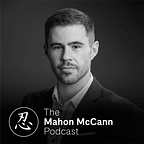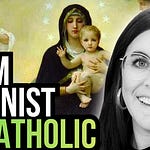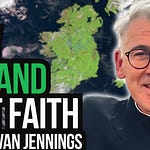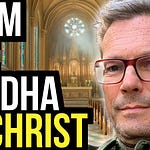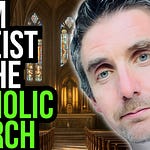The third dimension of meaning in life is called ‘significance’, which has to do with worth, importance and value.
Park and George define significance as ‘a value-laden evaluation of one’s life regarding how important, worthwhile, and inherently valuable it feels.’ Like purpose, significance is about value and finding justification for one’s actions, existence and way of life that extend into the future. It is about evaluating one’s life as a whole, past and present and future and the sense of value that arises when one evaluates one’s life according to some conceptual criteria, which is what we will explore first. This dimension is a critical missing dimension noted for victims of suicide, who feel their life is valueless or not worth living.
A Framework For Evaluating Your Life
As a young man who has grown up in the culture war of the West, I’ve struggled mercilessly with this question. The question is, what is the ultimate way to live? It is a question of where human value and worth lie. What does true human value look like?
With a clear ethical framework, we can answer this essential question.
You can see this ethical confusion in the modern culture that oscillates between the mommy culture of ‘you’re perfect in every single way’ and the harder ascetic, navy-sealesque ‘nobody cares, work harder’ mentality; both are extreme positions. Of course, the truth lies somewhere in between, which coincidentally is where virtue also lies. In the in-between, we can find the golden mean, the roving standard necessary for evaluating human moral character. In fact, an entire tradition of ethics does just that, called ‘Virtue ethics’ (which I previously wrote this essay about here).
A virtue is a mean between two extremes called vices. These virtues and vices are character traits, habits and dispositions. The good character traits are virtues like honesty, generosity, wisdom, courage, etc., and the bad character traits are called vices like cowardice, foolishness, injustice, gluttony, etc. The virtuous character embodies those best character traits and provides a valuable framework for evaluating our moral failings. Virtue ethics also connects deeply with stories because, of course, stories are about character, good character and bad character, and dramatising the successes and failures of particular virtues and vices. In this view of morality, your favourite TV show is as much a moral exemplar as any other person. It can offer an evaluative framework for art and media and much of our online behaviour and in real life. Virtue ethics is the evaluative framework you are looking for.
It is a path, a way of self-reflection and self-knowledge, because virtue ethics requires knowledge of virtue and good and bad traits so you can identify the golden mean between them. Sometimes, we believe we are courageous when we are actually reckless, and sometimes, we think we are wise when we are really foolish. Therefore, self-reflection and building self-knowledge are necessary to discern virtue from vice.
There is a nice element to virtue ethics that accepts our character will be all over the place - that perfect wisdom is essentially impossible for human beings, but that being said, we still need to work to get ourselves in order. I would argue that it is taking part in this self-reflection, taking on the challenge and trying to orient one’s poor character toward the commendable good, not just being the finished product, that is important. As Plato said, “Never discourage anyone who continually makes progress, no matter how slow”.
Virtue ethics encourages you to choose and take actions that align with the virtues. This means making moral decisions and behaving in ways that reflect your values. When you consistently act in accordance with your values, you can experience a sense of significance because you are living in alignment with your deeply held beliefs, that you are meeting the standard - significance is about living a virtuous life, not just a few minutes every now and again.
The end goal of virtue ethics is called ‘Eudaimonia’, sometimes badly translated as ‘happiness’, but it is more like a good life lived in accord with virtue that results in human moral growth that actualises one’s potential - it’s the joy of a job done well. Virtue ethics is all about the good life and what it means to live a good life, which is universal in some ways but also unavoidably particular. Significance comes from honestly saying we are living the good life, which is what we will look at in the next sections.
What is the good life?
John Vervaeke, cognitive scientist and creator of awakening from the meaning crisis series, recommends a two-part spiritual exercise for increasing your significance in life. Firstly, ask yourself this question:
“What would you like to exist even if you don’t? And why?”
Answering this question will reveal what is truly important to you, no bullshit.
An example answer:
“I would want truth to exist when I don’t, therefore, I need to spend time in my life uncovering and sharing the truth, or at least, exemplifying the pursuit of truth. And why? A world without any truth would be a dark place, there would be no learning, no transformation and no hope. A world without truth would be a world not worth living in for people and that’s sad.”
So try the exercise yourself, write down the question:
“What would you want to exist when you don’t? And why?”
And then answer it, before tackling the next part.
Increasing Marginal Significance
The second spiritual exercise to increase significance in life is asking this question:
“How much do I matter to what matters to me?”
So there’s a duality to this question:
What matters to me?
Which we’ve identified in the first section.
2. How much do I matter to what matters to me?
It’s easy to say you care about something and then, upon self-reflection, realise that you are entirely divorced from that important thing. We profess family matters to us, but we only see them once a year at Christmas. We profess our career matters to us, but we spend all our time procrastinating and looking at memes on the internet.
Feeling a lack of significance is because you do not truly matter to what matters to you, but you can! Recognising the marginal gap between what matters to you and your current day-to-day routine allows you to optimise for mattering more to what matters to you. The more time and attention you give to what matters, the more significant your life will feel.
Try out this spiritual exercise and take what matters to you from the first part and then examine and reflect, how much do you matter to what matters to you!
Conclusion
So much of life is about how we think about it. Recently, I lost a friend to suicide, and I just wish he could have taken on another perspective on his own life, one that included how valuable he was, how many people loved him, and what he still had to offer to all of us and the world. At the funeral, his father gave a speech that was one of the most powerful things I ever saw in my life, a father having to bury his son, and he still managed to remind the people gathered to:
“Remember, you’re important. No, not just important. You are sacred”.
It’s easy to forget and become lost, but the truth is that each person is a miracle, as complex and deep as the universe itself, a centre of experience and, hence, a center of reality; we have tremendous value, if only we can see it! This isn’t an argument for narcissism or grandiosity but for true appreciation, gratitude and love. You are sacred. Be suspicious of any perspective that tells you otherwise, because any perspective that you are sacred is missing the true significance of human life, and hence, the true significance of yours.

